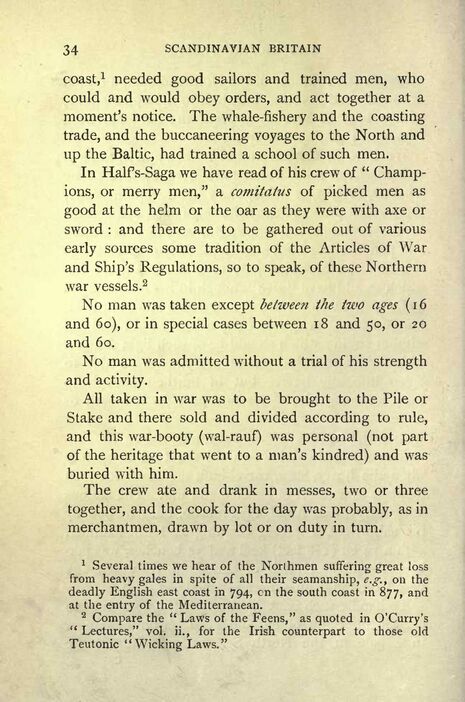
Full resolution (JPEG) - On this page / på denna sida - Introductory Chapters By the late Professor York Powell - III. The Wicking Fleets

<< prev. page << föreg. sida << >> nästa sida >> next page >>
Below is the raw OCR text
from the above scanned image.
Do you see an error? Proofread the page now!
Här nedan syns maskintolkade texten från faksimilbilden ovan.
Ser du något fel? Korrekturläs sidan nu!
This page has been proofread at least once.
(diff)
(history)
Denna sida har korrekturlästs minst en gång.
(skillnad)
(historik)
coast,[1] needed good sailors and trained men, who
could and would obey orders, and act together at a
moment’s notice. The whale-fishery and the coasting
trade, and the buccaneering voyages to the North and
up the Baltic, had trained a school of such men.
In Halfs-Saga we have read of his crew of "Champions,
or merry men," a comitatus of picked men as
good at the helm or the oar as they were with axe or
sword: and there are to be gathered out of various
early sources some tradition of the Articles of War
and Ship’s Regulations, so to speak, of these Northern
war vessels.[2]
No man was taken except between the two ages (16
and 60), or in special cases between 18 and 50, or 20
and 60.
No man was admitted without a trial of his strength
and activity.
All taken in war was to be brought to the Pile or
Stake and there sold and divided according to rule,
and this war-booty (wal-rauf) was personal (not part
of the heritage that went to a man’s kindred) and was
buried with him.
The crew ate and drank in messes, two or three
together, and the cook for the day was probably, as in
merchantmen, drawn by lot or on duty in turn.
<< prev. page << föreg. sida << >> nästa sida >> next page >>